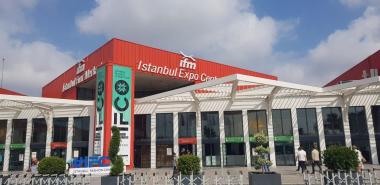ChemSec’s PFAs Movement: Brands want the EU to ban PFAS chemicals
- Harmful PFAS chemicals, used in thousands of consumer products, are shaping up to be the big environmental and health threat of our time. The EU is now the first in the world to propose a broad ban on these chemicals.
- Consumer brands worth more than €130 billion support the ban on PFAS.
- Investors with assets in PFAS-producing companies are calling for an end to production.
Many companies are taking a stand against PFAS chemicals as the EU invites the public to give its opinions on the proposed ban on these harmful chemicals.
108 companies dedicated to phasing out PFAS chemicals from products and processes have joined the PFAS Movement, an advocacy campaign initiated by environmental NGO ChemSec that calls for comprehensive regulation of PFAS in the EU. The members comprise many well-known brands, such as Inditex, Urbanears and the Cookware Company, representing various industries— fashion, home goods, food, and personal care. The members are worth more than €130 billion in total revenue.
“A European ban on PFAS chemicals will have huge repercussions for all manufacturing industries and require much work for companies in the global supply chain. However, some parts of the industry oppose this ban, claiming that the change is too big to be justified. That’s why the support for a ban from such influential consumer brands as those in the PFAS Movement is so important. It’s a strong sign that businesses want to eliminate PFAS chemicals in products and processes”, says Anne-Sofie Bäckar, Executive Director at ChemSec.
A Hollywood Helping Hand
ChemSec’s PFAS Movement is not only supported by the brands but also by Hollywood actor Mark Ruffalo who became a PFAS activist after his involvement in the film Dark Waters. The film depicts the real-life events following the massive uncovering of PFAS contamination in the USA. As a result, several PFAS producers in the USA are now involved in multimillion-dollar lawsuits.
The health and environmental threats of PFAS, along with all the lawsuits, have also created attention among another influential group: institutional investors. Last year, 47 institutional investors with US$8 trillion in assets sent a letter to 54 chemical companies named by ChemSec, calling for them to halt the production of persistent “forever chemicals”.
The EU ban on PFAS
The proposed EU ban on PFAS is extensive and the first of its kind worldwide. The idea was initially initiated by Sweden, Denmark, the Netherlands, Germany and Norway, who have spent almost three years mapping the implications of a ban on PFAS chemicals in a dossier that expands over nearly 2000 pages. The proposal shows, among other things, that the emissions of PFAS were 75 000 tonnes in 2020. If this continues, the emissions are expected to sit at 4.4 million tonnes in 30 years. The emissions originate from the production and use of the many products that contain PFAS; furniture, cosmetics, electronics and many more.






























